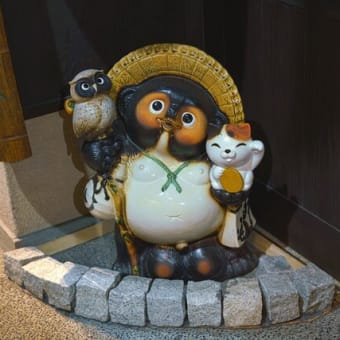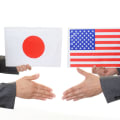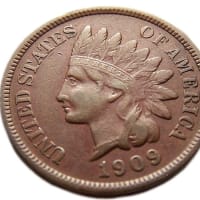Dali Today’s topic is related to gairaigo from English. How do you feel about English loan words in Japanese?
ダリちゃん 今日のトピックは英語から来た外来語について。日本語で英語の借用語についてどう感じる?
Me You mean English-Japanese?
私 日本語英語のこと?
Dali Yes.
ダリちゃん そう。
Me Nothing.
私 別に。
Dali No opinion? So you are indifferent.
ダリちゃん 意見はないの? じゃあ関心無いんだ。
Me Yes, that’s right.
私 うん、そうだよ。
Dali Many gaijins in Japan are also indifferent, except for one thing that annoys many gaijins, including me.
ダリちゃん 日本にいる多くの外国人も無関心。わしを含めて多くの外国人をいらだたせる一つの事を除いてね。
Me What on earth are you talking about?
私 いったい何を言ってるの?
Dali It’s when the meaning of the English-Japanese expression differs from the actual English meaning, or when the grammar is incorrect, or when it sounds awkward. This offends many native English-speaking gaijins in Japan.
ダリちゃん 日本語英語表現の意味が実際の英語の意味と違っていたり、文法が間違っていたり、あるいはぎこちなく聞こえたりする時。日本に住む多くの英語を母国語とする外国人を怒らせる。
Me Why?
私 なんで?
Dali Because it makes you Japanese sound foolish. The Japanese language takes it and uses it strangely. Here’s an example of what I’m talking about.
ダリちゃん だって君ら日本人がバカみたいに聞こえるから。日本語がそれを採用して変な風に使ってるんだ。わしが言ってる事の例を言うね。
Me What is it? Tell me! Tell me!
私 なに? 教えて! 教えて!
Dali It’s “My Number.” It's a gairaigo that has become rampant because of relentless government propaganda. It comes from the rather foolish notion that “my” means “jibun-no.”
ダリちゃん それはね、「マイナンバー」なんだ。日本政府の情け容赦のないプロパガンダによって世間にはびこってしまった外来語なんだ。「マイ」が「自分の」を意味するというかなりバカげた考えから来ているんだ。
Me Why foolish?
私 なんでバカなの?
Dali Because “my” doesn’t mean “jibun-no.” It means “watashi-no.” So how do you say “Anatano-‘My Number’-wa nan-desuka?” in English?
ダリちゃん だって「マイ」は「自分の」という意味じゃないもん。「私の」という意味。じゃあ「あなたのマイナンバーはなんですか?」って英語で言ってみてよ。
Me It’s easy. “What is your ‘My Number’?”
私 そんなの簡単。「ワットイズマイナンバー」。
Dali Such a foolish translation! To English speakers, your translation sounds like, “Anata-no watashi-no bango-wa nan-deska?”
ダリちゃん なんとバカな翻訳! 英語話者にはイナちゃんの訳は「あなたの私の番号は何ですか?」みたいに聞こえるよ。
Me Oops!
私 ウッツ!
Dali Some English words related to foreign cultures or ideas were also introduced into Japanese. For example, foreign foods―pizza, hamburger, ketchup, or mayonnaise. I have no objections to this. It’s perfectly fine and natural!
ダリちゃん 外国文化や思想に関するいくつかの英単語もまた日本に導入されてるよね。例えば外国の食べ物。ピザ、ハンバーガー、ケチャップ、マヨネーズ。わしはこれについては異議はない。まったく問題なく自然!
Me Go on.
私 それで……
Dali On the other hand, gairaigos are also used to replace perfectly fine and acceptable Japanese words. I hate this because it belittles the Japanese language.
ダリちゃん 一方で外来語は完全に適切で許容可能な日本語の単語の代わりに使われることもある。わしはそれは日本語を卑下するものなので大嫌いだ。
Me Go on <yawn>.
私 で……(ふわ~ん(あくび))
Dali For example, in a restaurant, the waiter, despite otherwise speaking Japanese, might say, “Dorinku-wa?” We have a perfectly fine Japanese word, Nomimono. Or, he may talk about the size of a drink: S-size, M-size, or L-size. Why does he need to speak this way? We have shou, chuu, dai! We don’t need gairaigo because we have perfectly fine Japanese expressions!
ダリちゃん 例えばレストランでウェイターが、日本語を話せるにもかかわらず「ドリンクは?」と言うかも。「飲み物」という完璧な日本語があるのに。あるいは、ウェイターは飲み物の大きさをいうのにSサイズ、Mサイズ、Lサイズと言うかも。なぜこのように話す必要があるのだろうか? 小、中、大と言うべき! 完璧な日本語表現があるのだから外来語は必要ない!
Me <ZZZ…>
私 (ぐーぐーzzz……)
Dali Wake up!! And the biggest issue, the one that I hate the most, is when gairaigo is used for purely Japanese culture or ideas. Admittedly, this is rare, but we do sometimes see it. I refuse to use such expressions! Absolutely!
ダリちゃん 起きろ!! そして最大の問題。わしが最も嫌いな事。純粋な日本の文化や思想に外来語を使う事。確かに稀ではあるが時々見かける。わしはそのような表現を使うのは拒否する。絶対に。
Me You’ve lost me.
私 話についていけないよ。
Dali Consider the gairaigo―”Golden Week”! Golden Week is purely a Japanese holiday. Tell me, Ina-chan. What is “Golden Week”?
ダリちゃん 「ゴールデンウイーク」という外来語を考えてごらん! 「ゴールデンウイーク」は純粋に日本の祝日だ。イナちゃん。ゴールデンウイークって何か教えてくれる?
Me It comprises Showa Day, Constitution Day, Greenery Day, and Children’s Day.
私 昭和の日、建国記念日、みどりの日とこどもの日からなる。
Dali Yes. And these are all 100% Japanese holidays. In other words, 100% Japanese culture. So why do you use English for 100% Japanese culture? This is one of the rare, but despicable examples of using gairaigo for purely Japanese culture. I hate this. I refuse to use this word.
ダリちゃん そう。で、それらは100%すべて日本の祝日。言い換えると100%日本の文化。じゃあなぜ100%日本の文化に外来語を使うんだ? これは純粋な日本の文化に外来語を使う稀ではあるか卑しむべき例の一つだ。わしは大嫌い。この言葉を使うのを拒否する。
Me What are you supposed to say for “Golden Week,” then?
私 じゃあ「ゴールデンウイーク」の代わりになんて言う気?
Dali I say Haruno-oogata-renkyu.
ダリちゃん 「春の大型連休」。
Keywords(キーワード)
loan word: 借用語、借入語、外来語
indifferent: 無関心で、冷淡で、無頓着で
annoy: うるさがらせる、いらだたせる、怒らせる、悩ます、困らせる
what on earth: 一体全体、全く
expression: 表現
actual: 現実の、実際上の、事実上の
awkward: ぎこちない、ぶざまな、不器用な、下手な
offend: 怒らせる、感情を損なう、傷つける
rampant: 流行する、はびこる
relentless: 冷酷な、情け容赦のない
propaganda: (国家などが組織的に行う主義・教義などの)宣伝、プロパガンダ
objection: 反対、異議、異論
go on: 進めてください
belittle: みくびる、けなす、卑下する、小さくする
admittedly: 一般の認めるように、衆目の認めるように、疑いもなく、明白に、確かに
yon lost me: 話についていけない、理解できない
despicable: 卑しむべき、見下げ果てた、卑劣な
ingrained: 深くしみ込んだ、根深い、生まれついた、生得の
number two: 第二級の、うんち、大便
feces: 糞便、排泄物
number one: 第一番、おしっこ、小便
urine: 尿、小便
Comments(コメント)
In Japanese fast-food restaurants, the M-size, S-size, and L-size concept is deeply ingrained into Japanese culture. So, when we say dai or shou, we naturally think about the toilet situation─dai is number two (feces), and shou is number one (urine).
日本のファストフードレストランでは、Mサイズ、Sサイズ、Lサイズの概念は深く日本の文化に根付いている。で、大とか小という時、私たちは普通トイレの場面を想像する。大はうんち、小はおしっこ。























